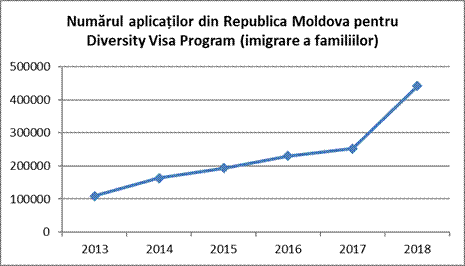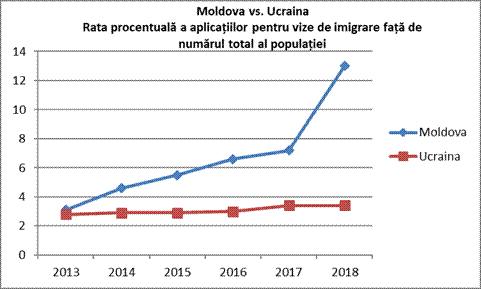
It’s summer and it’s hot. The politicians and journalists are on vacation. And the circumstances did so that the Executive Coordinator of the government Vlad Plahotniuc gave an extensive interview from which one can extract a series of subjects of special interest. The given interview makes us to sincerely rejoice as it was timed to coincide with the 27th anniversary of the Independence of the Republic of Moldova. The purpose of the interview is to cultivate optimism for a better future in our country, evidently under the auspices of the Democratic Party of Moldova (PDM) and the executive coordination of Mister Vlad Plahotniuc, and to also emphasize the habits of the opposition, which sees only bad things and does not have the capacity to enjoy the successes of the government.
This is the first impression you get when reading the interview. If you stop and ponder over and start to look for data that would confirm what Mister Plahotniuc said, the joy turns into sadness or even despair. And this refers only to one episode of the interview, which is yet fully verifiable. It is about the dramatic depopulation of the Republic of Moldova. This is what Mister Vlad Plahotniuc says about this phenomenon: “People have been leaving Moldova since declaration of its independence, it is not a phenomenon that started now. There have been times when this migration has been greater. If you take official statistics, you will find that the largest flow of departure was until 2015. Since 2016, when the Democratic Party assumed the governance, this flow has been reduced.”
Indeed, if our ranks become narrower year by year, it is easy to deduce that the flow of emigrates in absolute figures could diminish. Wanting to emigrate and really emigrating are two different things. That’s why the citizens’ optimism and reactions to the successes of the rulers are precisely measured namely by the intentions to emigrate, especially those measured in percentage against the total number of people. The favorite destinations of Moldovan emigrants can be determined implicitly by the volume of remittances - Russia, EU member states, Israel and the U.S. The United States ranks fourth as a source of remittances, which is also by the presence of Moldovan immigrants there. But the U.S. Citizenship and Immigration Services provide exact data about the number of applicants for Green Card Through Diversity Visa Program. And this is really impressing!

We see that the U.S. statistics do not correspond to what Vlad Plahotniuc says: after they fully took over in 2016, the number of applications to emigrate to the U.S. alone doubled! But we should not hurry to draw conclusions. To correctly assess the emigration tends in Moldova, we should compare our country with someone, with a country of the region where things go as good or as bad. It seems that Ukraine is the most suitable one for such a comparison. It experiences much more serious difficulties than Moldova. The war in Donbass region, the dramatic fall in living standards in 2014-2018 make it more vulnerable in terms of emigration. But American statistics show the opposite.

If we compare our country with Ukraine, we see that things there are even worse than we could imagine. It is now the right moment to return to the question from the title – where does Vlad Plahotniuc’s optimism come from? Definitely not from the invoked statistics! 2018 is not over yet. There is 1/3 of it left, but over 400,000 Moldovans already or about 13% of the country’s population would like to emigrate to the U.S. But this is not at least the most popular destination compared with Russia and the EU. And this happens despite the efforts made by Mister Vlad Plahotniuc and the PDM he heads to renovate the political class by: modifying the electoral system; offering meal vouchers to employees; First House 1, 2 and 3; building of the Chisinau Arena, good roads for the depopulated Moldova, etc. So, where does the optimism derive from? The only plausible answer is – from the imagination of the propagandists who write answers to interviews.
If it’s true that the answers to interviews are written by someone else than the interviewee, the conclusion is that the propagandists undermine the authority of Mister Vlad Plahotniuc, presenting him as a banal liar. But anyone can convince oneself that the statements of Mister Plahotniuc and the statistical data of the U.S. authorities reveal completely different realities. To not allow such situations in the future, Mister Vlad Plahotniuc could give a lesson to the propagandists who presented him in such a light right before the Independence Day. For example, he could make a choir of them and oblige them to sing the famous song Come Home Dear Children on the Independence Day and this could be broadcast through all the channels of the media holding owned by him. This could definitely remedy somehow the situation concerning the emigration and, implicitly, the image of the Executive Coordinator. This would be an example that one can contribute to strengthening Moldova’s independence not only by criticism, but also by proposals of concrete solutions.
IPN experts













